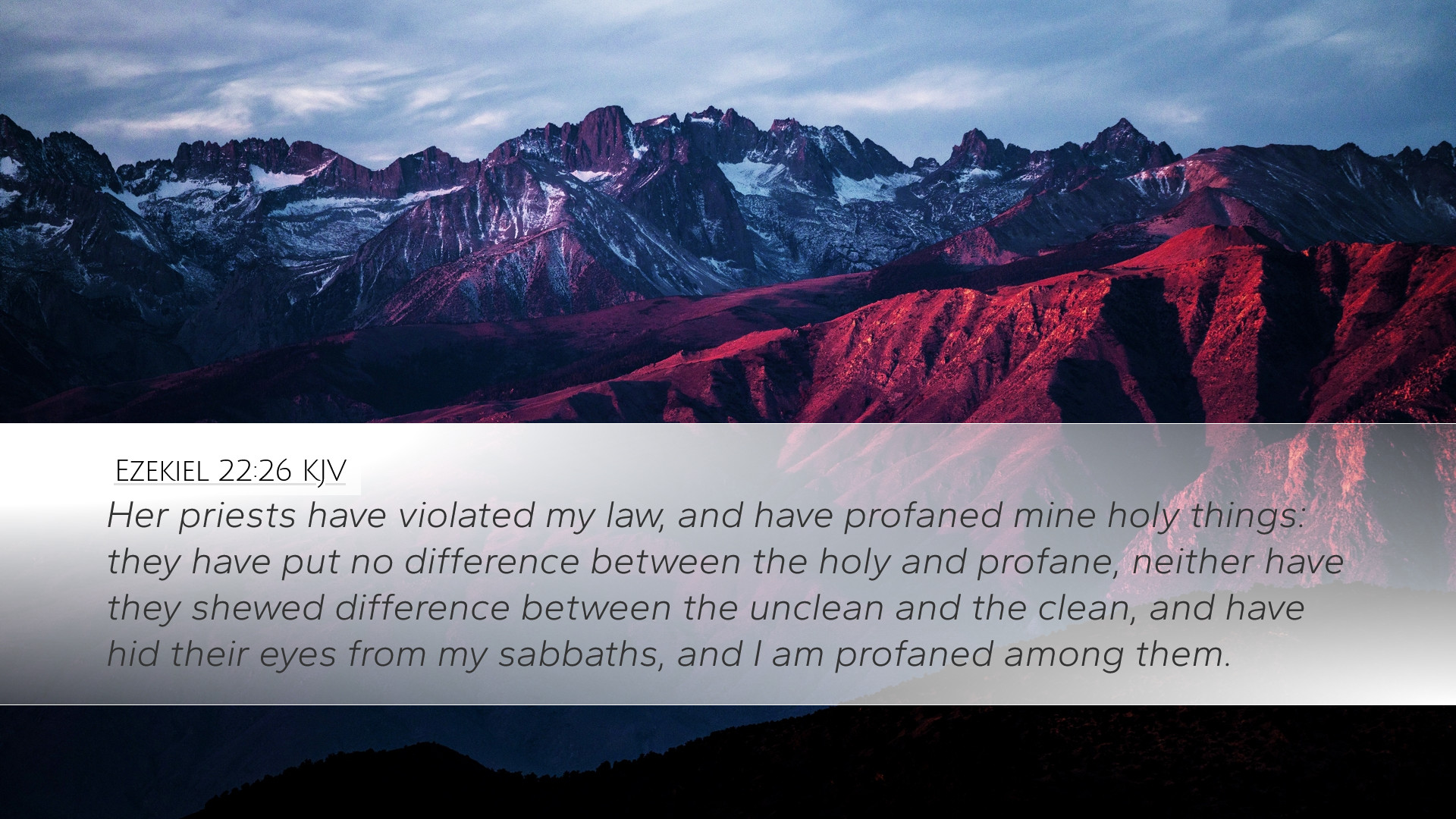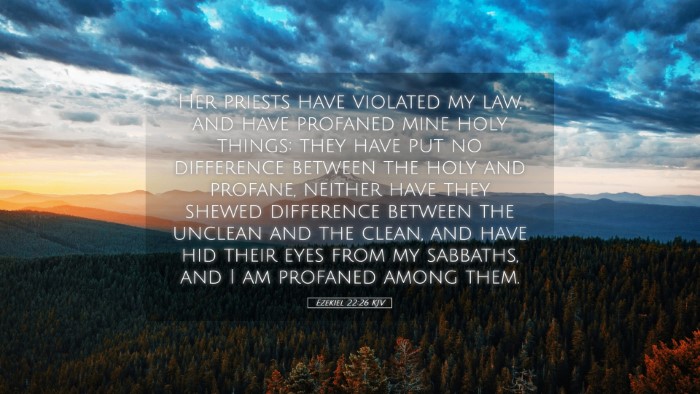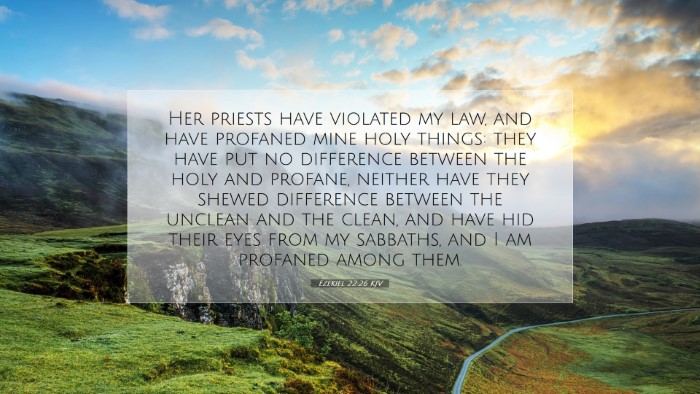Commentary on Ezekiel 22:26
Bible Verse: Ezekiel 22:26 - "Her priests have violated My law and have profaned My holy things; they have put no difference between the holy and the unholy, nor have they made known the difference between the unclean and the clean; and they have hidden their eyes from My Sabbaths, so that I am profaned among them."
Introduction
This verse serves as a poignant indictment of the spiritual leadership in Israel during Ezekiel's time. The passage is a comprehensive critique not only of the priests' failures but also of the wider spiritual decay among the people. As we explore this verse, we will draw insights from notable public domain commentaries to glean deeper theological and practical applications for our contemporary context.
The Role of the Priests
1. Violation of the Law:
Matthew Henry emphasizes the grave responsibility that the priests had in not only adhering to God's law but also in teaching it to the people. They have strayed from their sacred duty and, in doing so, have led others astray. Their actions reflect a broader failure in the community's understanding of God's holiness.
2. Profaning the Holy:
Albert Barnes highlights the concept of "profaning" God's sacred things. The priests not only failed to uphold God's standards but actively diminished that which was holy. This idea of profanation speaks to a lack of reverence and an absence of religious integrity.
The Confusion of Standards
1. No Difference Between Holy and Unholy:
Adam Clarke’s commentary explores the implications of the lack of discernment between the holy and the unholy. When spiritual leaders fail to distinguish between these two, they inevitably lead the congregation into confusion regarding God's commandments. This confusion fosters an environment where sin is normalized, and the values of the world infiltrate the church.
2. The Consequences of Blurred Lines:
This blurring of lines, as emphasized in all three commentaries, reflects a significant issue in modern churches as well. When the distinction between sacred and secular becomes unclear, congregants are left with a diluted understanding of holiness. Leaders are called to uphold the truth and clarity of Scripture, guiding their communities towards genuine worship and reverence for God.
The Sabbath and Its Significance
1. Hiding Their Eyes from the Sabbaths:
Matthew Henry points out that the neglect of the Sabbath is a serious offense. The Sabbath represents a covenant sign between God and His people, a time of rest and reflection on God's work. By hiding their eyes from it, the priests demonstrated a complete disregard for this vital aspect of their faith.
2. Consequences of Neglect:
In failing to honor the Sabbath, the priests not only brought about spiritual neglect but also set a precedent for the people, who would follow their example. Without the regular rhythm of rest and worship, the nation strayed further from the paths of righteousness.
Theological Implications
1. God’s Holiness and the Responsibility of Leaders:
This verse highlights the seriousness with which God views the responsibilities of spiritual leaders. There is a call to holiness, and when leaders fail, the repercussions are far-reaching. The hearts of the people are influenced by the examples set by their leaders (Barnes).
2. The Importance of Distinction:
Throughout Scripture, God emphasizes His holiness and the need for His people to be set apart. The lack of distinction made by the priests feeds into a larger theme of alienation from God. Clarke's commentary warns against the dangers of assimilation into worldly practices that dilute spiritual truth.
Practical Applications
1. Call to Spiritual Leaders:
The admonition from this passage is particularly relevant for pastors and church leaders today. Leaders are to safeguard the teaching of sound doctrine and uphold the practices that foster spiritual vitality. This is essential for the health of the church and its mission in the world.
2. Congregational Responsibility:
While the failure of the priests is highlighted, followers of Christ are also called to maintain a standard of holiness and discernment. A healthy congregation embraces the role of discerning truth and holding leaders accountable. Engaging deeply with Scripture, prayer, and community can empower the church to resist cultural encroachments.
Conclusion
Ezekiel 22:26 serves as a profound reminder of the need for holiness on the part of both leaders and congregants. The dangers posed by spiritual apathy and cultural assimilation can have devastating impacts upon the church. Through diligent adherence to God’s law and a commitment to distinguishing between the sacred and the secular, the church can continue to be a light in a dark world.
This passage offers an opportunity for introspection, prompting today’s Christians to assess their spiritual lives and the health of their communities. Let us heed the lessons of past scripture to avoid the same pitfalls, striving to maintain a clear distinction that honors God’s holiness and reflects His love.


